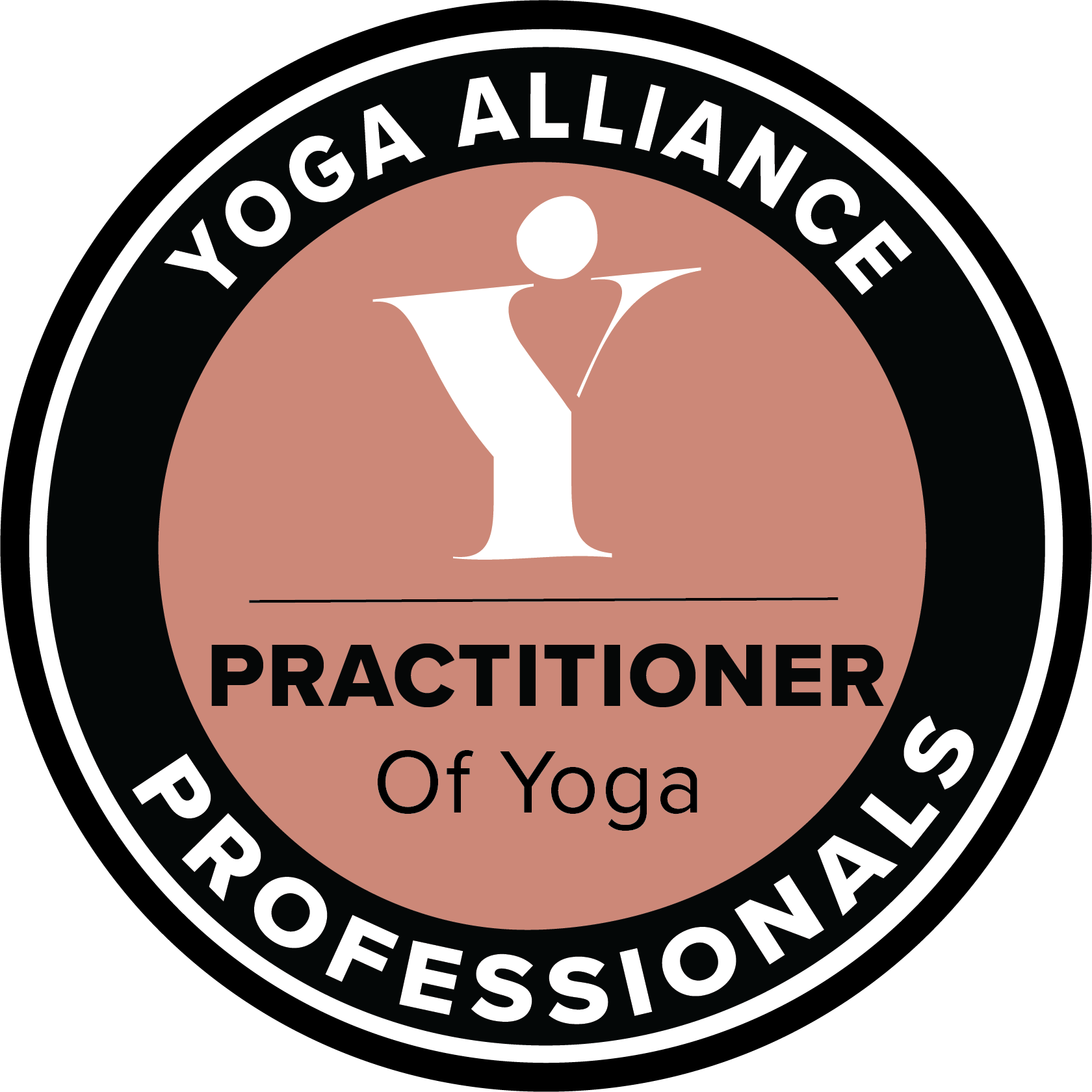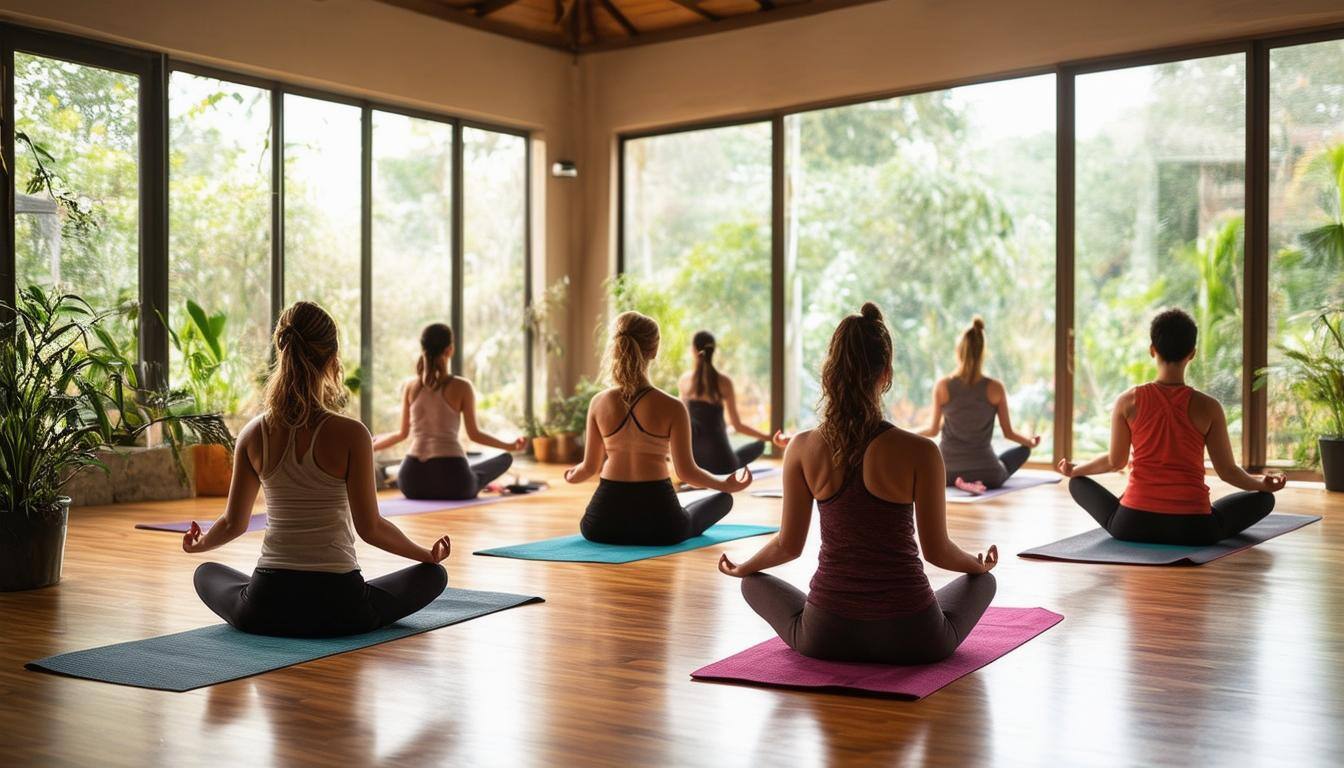How To Become A Yoga Teacher
Not all training courses are the same. Make sure that the training course you choose meets our minimum criteria (200 hours, 180 contact hours, taught by a Senior Yoga Teacher) and that you are ready to take this big step in your yoga journey!

I'm Looking For A Training Course
We'll guide you through the steps

I've Already Chose A Training Course
We can confirm it meets our standards

I'm Thinking About Teaching Yoga
Access our video guide for help

How To Become A Yoga Teacher
Making the choice to become a yoga teacher is both exciting and intimidating. As long as you take a good quality training course and commit yourself to the profession, then you will be a successful yoga teacher!
What are the requirements for becoming a yoga instructor?
Yoga is an unregulated industry. This means there are technically no legal requirements to qualify as a yoga teacher. You can use our standards and best practices as a minimum to compare:
- 180 contact hours
- Taught by Senior Yoga Teacher (8 years, 4,000 hours)
- You have a 2 year long practice
What are the ethical considerations and responsibilities of being a yoga instructor?
Yoga welcomes all walks of life, so it is important that you are accepting of all types of students.
Not only should you treat your students with resepct, but you must also be mindful of your fellow yoga teachers. Carrying yourself in a professional and inclusive manner is a neccessity.
What are the most important skills and qualities of a successful yoga instructor?
It's about more than teaching yoga! You must have good communication skills, a basic understanding of tech, and customer service knowledge is crucial.
When To Become A Yoga Teacher
As mentioned above, you should have a strong and consistent practice for at least two years before embarking on a yoga teacher training course. Your days on a training course are full on, and if you do not have a solid understanding of yoga asana, then you may hold back the rest of the trainees.
What is involved in a typical yoga teacher training program?
There is no set way a training course is conducted. Especially the Yoga Alliance Professionals accredited courses, we do not have 'cookie cutter' courses, so all of our site's training events are unique.
What is definitive is that you will be practising a lot of yoga and learning lots of new skills. The days will be full on, especially if you choose an intensive course, but you will have fun and meet like-minded yogis along the way.
How can prospective yoga teachers assess their readiness and suitability for teaching?
Only you can decide if you are truly ready to become a yoga teacher. We recommend watching our 'Thinking About Teaching' guide which will help you make the self-assesment.
We also strongly recommend attending a pre-foundation course event. These events allow you to ask any questions you have to the lead teacher on a training course directly, and they'll help you decide if the course is right for you.
More Information
Thinking About Teaching GuideFinding A Training Course
When finding a foundation yoga teacher training course, you need to consider your goals and what will make you a confident yoga instructor.
What are the key components of a well-rounded yoga teacher training program?
As mentioned above, every training course is different and will have varying focuses. What makes good training will depend on the goals that you have.
For example, if you want to start a yoga business, you will want to choose a course that covers the business and marketing of yoga.
What are the best practices for selecting a yoga teacher training program?
You can use our minimum requirements as a guide (as discussed above), or you go above and beyond this with the following:
- You have 20 hours of regular classes with the Course Principal teacher
- 250 Minimum Hours
- 200 Minimum Contact Hours
- Taught By Senior Yoga Teacher (8 years teaching + 4,000 teaching hours)
- Continous mentoring and development in the first year (Foundation +)
You'll also want to do the following:
- Look at reviews
- Contact past graduates
- Request and review the course breakdown
- Attend classes/events with the lead teacher before the course
From Our Blog

3 Reasons to Skip Quick-Fix Yoga Training and Choose Accreditation

The Unexpected Stresses of Teaching Yoga

